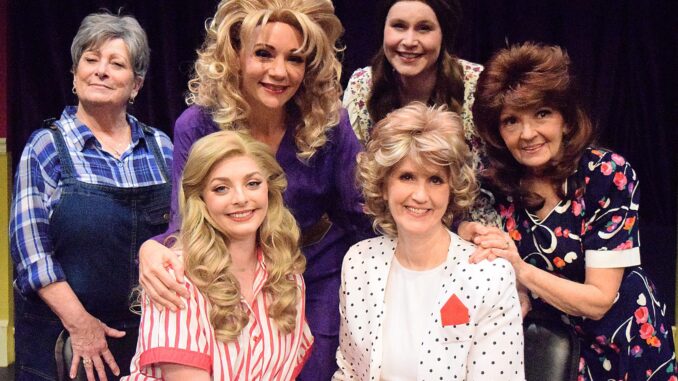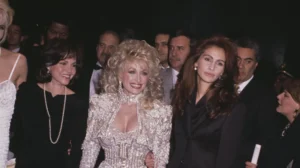
The Untold Truth Of Steel Magnolias
When it comes to classic Southern movies, there’s no denying that “Steel Magnolias” is one of the all-time greats. With a cast full of powerhouse women, it’s no surprise the film became such a hit. Shot in Natchitoches, Louisiana – the hometown of writer Robert Harling — the film follows the lives, loves, and losses of a group of local women. There’s big-hearted Truvy Jones (Dolly Parton), out-of-towner Annelle (Daryl Hannah), grumpy Ouiser (Shirley MacLaine), soon-to-be-married Shelby (Julia Roberts), and her protective mom, M’Lynn (Sally Field) — women who occasionally clash but ultimately all support each other.
“Steel Magnolias” could certainly be called a melodrama, but it’s the heart-wrenching blend of comedy and tragedy that makes the film work. In his (mostly) positive review of the film, Roger Ebert wrote wrote, “‘Steel Magnolias’ is essentially a series of comic one-liners leading up to a teary tragedy, but let it be said that the one-liners are mostly funny and the tragedy deserves most, but not all, of the tears.” (Allow us to disagree slightly and say it does indeed deserve all the tears.) Considering the ample talents of its cast, it’s no wonder the film’s leading ladies were able to pull off both its playful and poignant moments.
You may think you know the story of “Steel Magnolias,” but do you, really? Keep reading to discover the secrets behind the making of the beloved film.

Steel Magnolias wasn’t written as a comedy
Though “Steel Magnolias” ends with tragedy, there are plenty of funny moments sprinkled throughout. However, despite the many one-liners, Robert Harling actually didn’t set out to write a comedy. Margo Martindale, who originated the role of Truvy on the stage, recalled the experience of doing the play in front of an audience for the first time. “We played it like a drama,” she told Garden & Gun. “We all thought it was a drama, and then the first night it was in front of an audience, we were shocked. It was riotously funny and played straight as an arrow.” She went on to say that the actors never thought they were delivering jokes, they were just talking like a group of women from Louisiana would.
Robert Harling remembers the opening of the play similarly. He’d originally thought of the play as a tragedy, but things changed when audiences got a hold of it. “It wasn’t until audiences came in and started responding to the way the women talked and how wonderful the actresses were that we realized, I guess this is funny — until it’s not,” he told Country Living.
Though Harling and Martindale may not have meant it that way, it’s this precise blend of humor and tragedy that makes the film such a success. You’re laughing and having a good time until, to paraphrase Harling, you’re not. It’s a gut punch made all the more impactful by the levity that’s preceded it.

